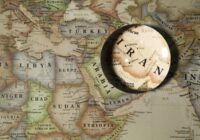What does the future hold for Tibet? [Note: View the photo feature here.]
Before I went to Tibet, I watched two movies. The first, Seven Years in Tibet, provided a good basic introduction to the modern political history of Tibet, specifically during the last years of independence before the Chinese Communist Party’s takeover in 1950. The second was a two hour YouTube film called, "Tibet Situation: Critical," which outlined in great detail the current political climate.
A Han Viewpoint
It was also interesting to hear the opinions of my two Chinese friends, Wei and Li, on Tibet and China's relations. They both felt strongly that the Chinese government had bettered Tibet’s sociopolitical situation and directly contributed to its economic prosperity.
Wei’s father, a Chinese businessman in Shenzhen, who did not come on the trip, argued that Dalai Lama has a detrimental impact upon Tibetans, because his infallible political and religious influence causes innocent people to harm themselves (referring to the Tibetan self-immolations of 2008, which continue to this day). Once the Dalai Lama is removed, he believes, it is likely that political tranquility will ensue and the Tibetans will happily enjoy their participation in Chinese society.
Different Forms of Censorship
Upon arrival in Tibet, I was fascinated by what I saw. Even though my tour (you can't go into Tibet as a foreigner without a guide) didn't take me out into the restricted areas, I believed that I learnt just as much by seeing how the easily tourist-accessible areas are handled, and can extrapolate onto the rest.
During our stay in Tibet, particularly in the capital city, Lhasa, we had to be extremely careful about what we said. There were people listening everywhere; not just in public, but in bugged restaurants and hotels. I heard one story of a Chinese couple who were arrested at the hotel I was staying, several months prior, for discussing the idea of Tibetan autonomy.
Restricting Tibetan Cultural Practices
On the third day of the journey, I happened to find myself in Lhasa during the Sho Dun Festival, known in English as simply the “Yogurt Festival.” The festival celebrates the end of summer in Tibet, and is the biggest holiday of the year. During the previous three months, the monks had not left their homes, and had avoided walking on grass or dirt. The summer season in Tibet attracts the largest number of insects; therefore, the monks stay inside to avoid crushing their ancestors with their footsteps.
Tibetans from all over central and western Tibet flock to Lhasa to celebrate the festival. Eastern Tibetans, however, are not allowed to travel outside of the area in which they live, for the Chinese government fears a political uprising. The ancestors of these Tibetans were warriors who defended Tibet from empires to the east, including Burma, China, and ancient empires of Southeast Asia — and as one Tibetan told me, "they still have fire in their blood." Some of the monasteries in eastern Tibet have also been the sites of a number of the self-immolation incidents.
The pilgrimage to Tibet is practiced differently than in the past tradition. Tibetans are no longer allowed to kneel and crawl to worship; they must instead walk upright to be in the presence of Buddha.
For the festival, the locals make homemade yak yogurt, which they offer to the monks as a gift. Moreover, thousands of Tibetans walk several kilometers uphill to witness and give offerings to a giant painted Buddha on canvas, which is unrolled on a hillside above the Drepung Monastery.
Great Chinese Military Presence
As I walked toward the monastery, a convoy totaling several dozen army transport vehicles drove past. Being ignorant as always toward rules, I tried to snap a few "incognito" photos of the convoys, but didn't get anything worthwhile in the end.
In Lhasa, the ratio of military to civilians is one-to-one. The festival proved no different. Chinese army troops and officers stood everywhere. Additionally, the hillside above also crawled with more military, patrolling the region in an effort to avoid any conflict.
My Tibetan guide laughed as he explained that all the troops were for "our safety." There were also rumored to be the same number of undercover Chinese military at the festival, but who is to know. Despite over 50 years of integration work by the Chinese government to bring Tibet into China, it was clear that the situation is still not in perfect harmony.
The Sinicization of Tibet
The Chinese government began a massive migration program to bring Han citizens into Tibet and Lhasa to become residents in the 1990s. Twenty years ago, Lhasa was mostly farmland surrounding the main city center and Potala Palace. Today, however, the streets are lined with Chinese shops, restaurants, hotels, and businesses. A great number of construction projects and their cranes fill the skyline.
Summertime in Tibet is full of mostly Chinese tourists in large tour groups. These groups travel across Tibet to the different historical sites and scenic destinations. Guides make money by bringing these tourist groups to expensive restaurants, shows, and shopping areas to collect souvenirs; all of which the guide receives a cut of. The guides often encourage tourists to, as college kids would say, "ball out" and lavish themselves on what may be their first ever vacation.
Historically, there has never been a middle-class in China (in the modern American sense) which helps to explain the nature of the Chinese tourism industry today. With the addition of the opening of China in 1989, Chinese citizens now have greater access to travel, regionally and internationally, and the means to do so. Since travel is still regarded as a luxury, Chinese tourists enamor themselves with photos and souvenirs to remember their trip and share with family and friends. Though, ironically in Tibet, many of the souvenirs are made within a few kilometers of their hometowns.
Not only are the number of permanent Chinese residents in Tibet exponentially increasing, but the large number of Chinese tourists also offer a heavy dose of Chinese cultural influence to the region. The Sinicization of Tibet thus suddenly makes it hard for what will soon be a minority in Tibet — the Tibetans themselves — to declare their right for autonomy and independence.
Conflicting Views of Religion and Politics
The idea of religion is also a huge ideological conflict between Buddhism in Tibet and the Chinese government. The Chinese government’s official stance regarding religion is atheistic; since the Cultural Revolution, it has scarcely tolerated religion at all. During the revolution, thousands of images of Buddha were decapitated and, in Tibet, many temples and monasteries were destroyed.
This ideological difference with Tibetans, who view the Dalai Lama as both their political and spiritual leader, does not allow any resolution. For Tibetans to acknowledge China as its rightful government, they would also have to denounce the Dalai Lama as their political leader — which is in conflict with their religious beliefs.
One day on a drive to Shigatse, a city in western Tibet, we stopped for lunch at a small Tibetan restaurant in a roadside town. My friend Li and I exchanged some small talk with a gentleman at the table next to us, and by the end of our lunch, we had unwittingly become friends with the richest man in Tibet (as a disclaimer, probably the richest Tibetan, for Chinese investments in Tibet are much more lucrative). He runs a company that manufactures, sells, and exports farming equipment used in Tibet for barley and mustard production. He proudly told us that he had been to 15 countries, the majority of them in Europe (though mostly on business trips). I silently reflected on the unfairness that one’s opportunity to travel to different countries is dependent on the citizenship with which he is born.
Life as a Second Class Citizen
Money only goes so far though, and despite his success as a businessman (according to Google, his company is worth around $100 million), his two daughters have not been able to leave the country. Generally, it is almost impossible for a Tibetan to obtain a Chinese passport. (Even Chinese sometimes face great difficulties, since in the last year several children of prominent Chinese businessman have “escaped” permanently to reside in the US and in Europe.)
The Tibetan businessman expressed his hope of someday sending his daughters to university and graduate school, but currently, despite his wealth of guanxi (connections), he has been unable to do so.
Over the past few years, the Chinese government has begun a massive internal gentrification project. It is moving Tibetan families from the hillsides — 80 percent of Tibetans are farmers or nomads — into small villages on the side of roads. The government will pay half the cost of housing construction for a family who choose to move.
Part of the goal of this project is to improve tourism by allowing tourists to see Tibetan villages as they pass on the roads. Another goal is to open up farmland for large-scale agriculture, a trend which is happening all over central China.
The hardship of this is the cultural change it requires. The families that move into these villages, with “firmly” offered invitations, have to change their entire way of life. Most open up small shops and restaurants, and while the buildings themselves look nice and are intricately painted, it reminds me of driving down a highway in Central America or Southeast Asia in terms of the composition of these peoples’ lives.
In a comparison to “the projects” in the US and the cleanup of the slums of Mumbai, both these attempts failed — at least in part — because they destroyed the sense of community that previously existed among these groups, which contributed to wide-scale vulnerability and ensuing depression, addiction, and a myriad of other problems. While the Tibetans’ socioeconomic status may be increasing strictly-speaking, it is difficult to predict the effects of drastic cultural and lifestyle changes, which are to affect generations to come.
The Future of Tibet
Given these observations, what can we predict about the future of Tibet? In major monasteries, especially in Lhasa, the number of monks studying and residing at each is greatly decreasing. In order to join one of these monasteries, monks must denounce the Dalai Lama and accept the Beijing appointed Panchen Lama, who is second in command. (The Panchen Lama recognized by the Dalai Lama and most Tibetan Buddhists, was detained by Chinese authorities in 1995 and has not been seen since.) They are also required to follow any government “advisements” — so in essence it is a form of Buddhism that operates within the confines of what Beijing directs.
When the Dalai Lama passes away, I believe power will greatly shift to the Chinese government. There will still be small factions which resist Chinese authority and sovereignty well into the future. However, the majority of the people will accept the Beijing government because of difficulties in going against it and the hopelessness of that effort.
Some of the Tibetan youth also seem to follow the worldwide trend of a lessening importance placed on religion, which also adds some future local support for China. These youth have also never experienced a free Tibet, and the current situation is the only one which they have ever known. As years pass, it will be harder and harder to reverse the Sinicization of the population and culture, and for Tibetans to clearly picture the idea of a free Tibet.
Upon the Dalai Lama's death, the Chinese government will appoint a new Dalai Lama, and the already derelict shell of Tibetan culture will become increasingly brittle. A foreign Dalai Lama (a Tibetan living abroad), most likely in Europe or the United States, will also be appointed by those still following the old ways and resisting the authoritative manner of the Chinese government.
However, this may mark the end of true hopes for the Tibetan fight for independence, since Tibetans will no longer be unified in one cause toward their independence. As it becomes evident that many Tibetans accept Chinese government rule, they will eventually become officially second-class citizens, much as African Americans were in the post-civil rights 1960s and 1970s in the United States: equal under the law, but subjects of great discrimination. It will be interesting to see how the Chinese government handles this.
The views expressed in this article are the author's own and do not necessarily reflect Fair Observer’s editorial policy.
Image: Copyright © Shutterstock. All Rights Reserved
Support Fair Observer
We rely on your support for our independence, diversity and quality.
For more than 10 years, Fair Observer has been free, fair and independent. No billionaire owns us, no advertisers control us. We are a reader-supported nonprofit. Unlike many other publications, we keep our content free for readers regardless of where they live or whether they can afford to pay. We have no paywalls and no ads.
In the post-truth era of fake news, echo chambers and filter bubbles, we publish a plurality of perspectives from around the world. Anyone can publish with us, but everyone goes through a rigorous editorial process. So, you get fact-checked, well-reasoned content instead of noise.
We publish 2,500+ voices from 90+ countries. We also conduct education and training programs
on subjects ranging from digital media and journalism to writing and critical thinking. This
doesn’t come cheap. Servers, editors, trainers and web developers cost
money.
Please consider supporting us on a regular basis as a recurring donor or a
sustaining member.
Will you support FO’s journalism?
We rely on your support for our independence, diversity and quality.







Comment